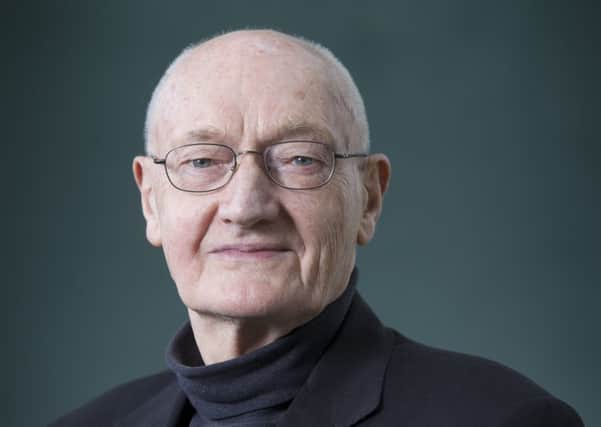Book review: Waiting For The Last Bus, by Richard Holloway


Animals may sense that they are dying. There are countless stories of cats sluggishly lying next to some warmth, or dogs disappearing into quiet places, or even elephants scattering skeletal remains (though that might just be a way to avoid predators). But they do not, as far as anyone knows, live with a foreknowledge of their own imminent extinction. We, unfortunately, are aware of the must-ness of death.
Holloway is “now in his ninth decade” and has an enviable track record of ecclesiastical prominence, publication, public service and provocation. He has done much good. Perhaps the most affecting points in this book are where he reflects on the undone. He berates himself for “rushing” his life – “I don’t mean missing it now. I mean missing it then, missing it while I was in the midst of it”. At the opening of the book he muses on the Dance of Death fresco in St Mary Magdalene in Newark, and on the fact that in ages past we had a more intimate relationship with death. It was something that happened at home, that was talked about beforehand, that was not medicalised, that was a point for which one might prepare oneself. As much as he discusses the new culture around dying, he commemorates a different approach that was in some ways saner. There’s nae pockets in a shroud as we once said. You can’t take it with you.
Advertisement
Hide AdHe identifies two religious approaches to the problem of death. One is metempsychosis, the karmic reincarnation of souls, as if the universe were a celestial washing-machine that eventually scrubs things out. The other is the idea of a final reckoning, more common in the Abrahamic faiths, but also evident in Egyptian religion (as a child I was terrified by the idea of Ammit, the crocodile-hippopotamus-lion creature who ate the souls of those whose heart was heavier than a feather). Both are, in a way, “get out of jail” cards. Do good and you come back better, do good and you go someplace better. I prefer the leaving this world better way of thinking to either, and it is one that Holloway enunciates with dignity.
Holloway has been open about his anxieties and his fractious relationship with faith. Recently, he has been much more concerned with the aesthetic than the theological, and it is deployed here to moving effect. The book is full of poetry that has meant something to him and whose meaning he wishes to convey. As well as what one might expect – Shakespeare, Donne, Auden, Larkin – there are more esoteric references. I am glad to have read the snippets of Laurence Binyon, Charles Turner Tennyson, John Meade Falkner, Francis Hope and ASJ Tessimond. They will indubitably stay with me.
Interspersed in the discussion are fragments of eulogies Holloway has had to give, and these are rather remarkable. He doesn’t shirk from saying the difficult or even the upsetting thing. He is as kindly as he is unsparing, both on himself and on the body in the box and on the people in the congregation. Grief is a profoundly estranging experience and, as it were, he catches the catch in the throat perfectly.
It is a book which lurches, beautifully, between interests; a flaw and joy that Holloway diagnoses in himself. One minute it is a discussion about the life of John Wayne, the next a disquisition on the enigma of St Peter. I said in a previous review of Holloway’s memoir, Leaving Alexandria, that despite his self-scourging comments on his precarious faith, I did not think the story was over. I maintain that stance. There is something of resignation in this book, and something of intransigence. I would not expect anything less.
There is an extremely interesting part on the Greek word used in the first Eucharist – anamnesis. It is usually translated as “remembrance” but if you break the word down, “not forgetting of” (as in amnesia, but reversed) might be as useful. It is also a medical term, where a doctor asks specific questions of the patient or of their family to determine a prognosis. Much of the best of this book is about not being forgotten. The dead have very few rights. Not being forgotten is the one we can gift to them.
What awaits us? Darkness according to the Anglo-Saxons, the early Israelites, the Greeks, the Romans. A judgment if one is Christian or Muslim. Groundhog Day if you are a Buddhist. I rather like Holloway’s affection for Purgatory – a belief with no real grounding. I’d happily spend time with him in the afterlife, discussing our failings, as we roll stones upwards, hoping to be better.
Waiting For The Last Bus, by Richard Holloway, Canongate, £14.99